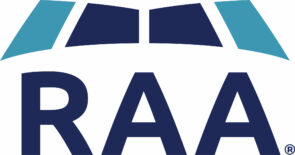WHO NEEDS AN ESTATE PLAN?
- Posted by Richard Winters, CFP®, CRPC®
- On December 30, 2019
There is a very common misconception that only the very wealthy, or those nearing the end of their lives, need to have a comprehensive estate plan in place. The reality, however, is that every investor – regardless of assets or age – should have a carefully crafted estate plan that defines their wishes. While we certainly hope that you have the opportunity to enjoy your retired years to the fullest, we know that the unthinkable can, and does, happen.
THE FIVE DOCUMENTS THAT ARE INCLUDED IN A COMPREHENSIVE ESTATE PLAN
While an estate plan may sound like a single document, it really includes five individual components. Once all of these documents are in place, you can be confident that your life’s wishes are documented, and your family will be prepared for whatever comes next.
1. Will
This document defines who will receive your assets after your passing, how much they will receive, and any limitations or caveats regarding how these assets may be used. This document may also define charities or endowments that should receive a portion of your life’s work. For clients with minor children, your Will appoints guardianship for their care and well-being.
2. Living Will
This is a very specific document which details your wishes for end-of-life care. Within this document, you can define whether you would like to be kept on life support, receive artificial hydration, or receive other types of specialized care. A Living Will is only used when you are unable to communicate these very personal wishes with medical professionals or family members.
3. Durable Power of Attorney
A durable Power of Attorney (POA) gives someone else, called the “agent,” the legal authority to make business, legal, and financial decisions on your behalf. It is referred to as a durable POA because it remains in place if you are disabled and unable to make these decisions on your own. This document differs from a Living Will, as it gives broad decision-making authority to the agent. The Living Will, on the other hand, provides very specific instructions.
4. Medical Power of Attorney
A medical POA is strictly limited to medical and healthcare decisions. When you grant someone medical POA, they are given the authority to request care and make critical decisions on your behalf. It’s important to understand that the individual trusted with durable POA and medical POA does not need to be the same person. Many of our clients entrust one family member with durable POA and another family member with medical POA.
5. Trust Documents
A trust allows a third party, the “trustee,” to hold assets on behalf of another person, called the “beneficiary.” If a trust will be the beneficiary of your IRA or 401(k), it is critical that RAA and your investment account custodians have your trust documents on file. A “Custodian” is the bank that your financial institution uses to hold your funds. For RAA clients, this is most likely Fidelity or Charles Schwab.
These five documents not only provide you with peace of mind, they also provide your loved ones with a clear path forward during one of life’s most difficult moments. Disability and death are not easy, but we are confident that an estate plan can help simplify the process and empower your family to continue the legacy you’ve worked years to build.
ESTATE PLANNING IS AN ONGOING PROCESS
Lastly, it’s important to understand that estate planning is not a “one-and-done” process. It is recommended to review your estate plan every three to five years, but this review should also happen any time your life significantly changes. Moving households (especially to another state), welcoming a new child or grandchild into the family, a death, a substantial increase in property value, or shifts in your personal desires are all signs that it is time to take another look at your estate plan and ensure it matches your current family makeup and outlook on life.
Over the last 30 years, we’ve helped countless pilots and their families navigate their estate planning needs. During this time, we’ve come to understand that there are simple steps that can be taken today to ensure your legacy is properly cared for when the time comes. Our goal in all of this is to have your last wishes carried out and your family members supported when they need it most.
READY TO LEARN MORE?
Contact RAA if you would like to establish your estate plan, provide documents from an existing plan for review, or have any questions about the process.
Disclaimer: This blog is intended for informational purposes only and should not be construed as individual investment advice. Actual recommendations are provided by RAA following consultation and are custom-tailored to each investor’s unique needs and circumstances. The information contained herein is from sources believed to be accurate and reliable. However, RAA accepts no legal responsibility for any errors or omissions. Investments in stocks, bonds, and mutual funds may increase or decrease in value. Past performance is no guarantee of future results. Any of the charts and graphs included in this blog are not recommendations for the purchase and sale of any security.



0 Comments